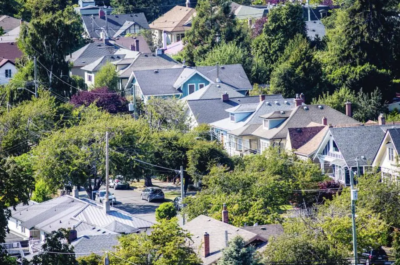The provincial government mandates the densification of detached home zones in B.C. cities, prompting a need for comprehensive studies.

Metro Vancouver’s Densification Study Initiative
Metro Vancouver launched a study to understand the costs associated with three development types: construction in existing urban areas, new suburban housing on “greenfields,” and infill development in existing neighborhoods.
Infrastructure and Services Costs
Eric Aderneck, Metro Vancouver’s senior planner, will explore the capital and operating costs of municipal and regional infrastructure and services for different residential forms, densities, and locations.
Infill Housing Challenges
Infill housing, a key focus, involves converting detached homes into structures with multiple units or developing townhouses through land assemblies. Challenges include sewer and road maintenance, as well as addressing the needs of a growing population.
Densification Financial Implications
Realtor Jared Gibbons highlights potential development cost charges of $20,000 to $50,000 per housing unit for infill projects. The study aims to provide baseline data on development and community amenity cost charges.
Gentle Density in B.C. Cities
B.C. cities are exploring “gentle density” or “missing middle” housing, redeveloping traditional detached homes into duplexes, triplexes, or quadplexes, and incorporating secondary suites.
Learnings from Other Jurisdictions
References to studies from Saskatoon and Australia provide insights into the cost-effectiveness of infill development and potential challenges for developers.
Metro Vancouver’s Urban Containment Boundary
An urban containment boundary enforces strict limits on “greenfield” development in Metro Vancouver. Amendments require majority approval from local council members.
Densification Study Focus and Limitations
The study won’t compare costs and revenues by municipality, leaving it to individual city halls. It also won’t recommend development costs (DCC) and community amenity charges (CAC).
City of Kelowna’s Perspective
Kelowna’s infill housing program sheds light on potential costs, indicating that each new unit may incur $20,000 to $50,000 for DCC and additional expenses for infrastructure upgrades.
Conclusion
As B.C. cities navigate the shift toward densification, the study by Metro Vancouver aims to unravel the financial intricacies, offering insights into the challenges and potential costs associated with different housing development types.
Kelowna’s infill housing program sheds light on potential costs, indicating that each new unit may incur $20,000 to $50,000 for DCC and additional expenses for infrastructure upgrades.
Conclusion
As B.C. cities navigate the shift toward densification, the study by Metro Vancouver aims to unravel the financial intricacies, offering insights into the challenges and potential costs associated with different housing development types.
Please contact Jared Gibbons, your local realtor, should you have any questions!

